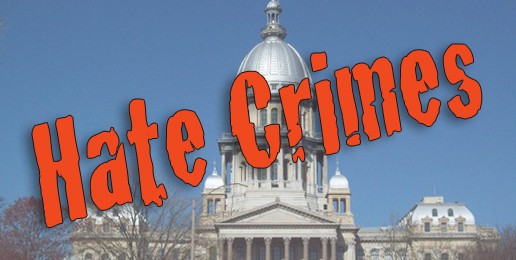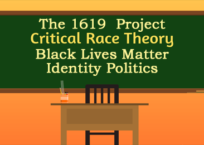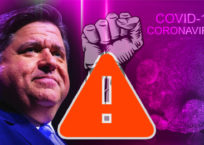
While media pundits and liberal activists feign “concern” about the prominence of “social issues” in the GOP primary race for president, liberal activists tirelessly work to advance their social agenda. Whether it is the mandate from Washington D.C. that requires all healthcare insurance plans to provide free contraceptives, abortifacients, and sterilization services or the introduction of a “same-sex marriage” bill in Springfield merely nine months after “civil unions” became legal in Illinois, the Left aggressively promotes its social agenda, often with the approval of the mainstream media.
Lesbian activist and recently appointed — not elected — StateRepresentative Kelly Cassidy (D-Chicago) is fast becoming Illinois’ champion of all things liberal. Leftwing zealot Cassidy is co-sponsor of the following bills: “same-sex marriage” (HB 5170), universal health care (HB 311), “medical” marijuana (HB 30), “comprehensive” sex education (HB 3027), a two percent sales-tax increase on firearms ammunition (HB 5167), a resolution to support the Occupy protesters (HR 610), and chief sponsor of another onerous “bullying” bill (HB 5290), which I will address in a future IFI E-Alert.
But it is Rep. Cassidy’s sponsorship of a legislative proposal that would add Gender Identity Disorder (euphemistically referred to as “gender identity”) to the existing “hate crime” law in Illinois (HB 4725) that is the subject of this article.
Enumerated “hate crime” laws are intellectually and ethically flawed and dangerous. This proposed amendment would only make a bad law worse.
It is important to remember that opposition to hate crime laws does not constitute endorsement of criminal acts committed against anyone. One can oppose both criminal acts of all kinds and the pernicious purported solution of hate crime laws, which pose a serious threat to liberty.
Take ACTION: Click HERE to contact your state representative to ask him/her to oppose HB 4725 and the addition of Gender Identity Disorder to existing hate crime law. You can also call the Springfield switchboard at (217) 782-2000 and speak to your local representative’s administrative aide about your concerns with this proposal.
It is interesting to note that this bill was originally heard in the Judiciary II committee last Friday, but failed by a vote of 2 yea, 2 nay and 3 present. Yesterday, however, two of the lawmakers who voted “present” [Reps. Bill Cunningham (D-Chicago) and Esther Golar (D-Chicago)] were substituted by Rep. Toni Berrios (D-Chicago) and the chief sponsor of the legislation, Rep. Cassidy. Obviously, Rep. Cassidy, who was appointed to the General Assembly last summer, has enough clout with Speaker Michael Madigan (D-Chicago) for this kind of maneuvering. This exposes Madigan’s eagerness to cater to the aggressive efforts of homosexual activists to promote their “social issues” in the General Assembly.
Problems with hate crimes laws in general:
- American jurisprudence traditionally and rightly takes into account the mens rea, or state of mind, of perpetrators of crimes. In the prosecution and sentencing of crimes, we take into account whether the perpetrator was negligent, reckless, knowing, or purposeful. These categories reveal that our system takes into account the perpetrator’s mental state or the degree of intentionality with regard to his or her actions.
In contrast, hate crime laws are concerned not with the perpetrator’s mental state with regard to his or her actions, but with the beliefs, feelings, or values that impel a particular criminal act. Hate crime laws depend on an evaluation of what the perpetrator believed to be true of the victim, and whether he or she acted because of that belief. This constitutes the most troublingly intrusive form of Big Brother thought control.
There is no ethical justification for meting out more severe punishments for identical actions based on the beliefs, feelings, or values of the perpetrator. The beliefs, feelings, and values of citizens — even beliefs, feelings, and values that society or some segment of society views as erroneous — should be off-limits to the law.
The enhancement of punishments based on the beliefs, feelings, or values of perpetrators opens the door to unconscionable government intrusion into the minds and hearts of citizens. Such intrusion into and evaluation of the beliefs, feelings, and values of citizens is inappropriate in regard to any conditions, including conditions that have no moral implications, but it’s even more problematic when it pertains to volitional behavioral conditions of which questions of morality are central (e.g., homosexuality, cross-dressing).
- The purpose behind enhanced punishments for particular beliefs, feelings, or values is to eradicate those beliefs, feelings, or values, which is decidedly not the role of government or the law.
- Equality before the law is a principle upon which this country is founded. That principle is undermined by establishing particular groups as more worthy of protection than others. Our legal system is based on punishing behavior, not selecting out particular victims for special treatment. Preferential treatment for one group, particularly a group that is constituted my subjective desires and volition, establishes a troubling precedent.
- Preferential treatment for one group will exacerbate rather than reduce inter-group tensions and hostilities.
- Establishing particular groups as deserving of special protections, preferential treatment before the law or establishing other groups as deserving of harsher punishments for committing the same criminal act because of their beliefs, feelings, or values creates a social and political climate that will affect the administration of justice.Imagine a scenario in which the victim of a mugging is a cross-dresser and the perpetrator is known to hate cross-dressers, but the perpetrator had not committed the crime because of his hatred for cross-dressing. Rather, he had committed it because the cross-dresser was alone and appeared to be wealthy. Could the perpetrator be treated fairly before the law? Should his feelings about cross-dressers be the concern of the government? Would the kind of politically charged legal context we are creating with laws that evaluate feelings ever concede that such feelings did not play a role in the commission of the crime? What crimes are prosecuted, and what sentences are levied become political acts.One writer explains this:
Prosecution is selective. This means that the district attorney or prosecutor decides which cases to pursue and which to dismiss. They also decide which charges to file. In most cases this is mainly about expediency, but there is always an element of politics involved. When it comes to hate crimes, the political element grows immensely in a potential prosecution. This is because the hate crime casts an offense against an individual or small group of individuals as an offense against an entire demographic subset.
Problems with the inclusion of the term “gender identity”:
- The term “gender identity” is a biased, non-neutral, political term that was created to disassociate certain behaviors (e.g., cross-dressing) from the psychological disorder that impels them. The neutral terms are “gender dysphoria” and Gender Identity Disorder. We object to the inclusion of “gender identity” because embedded in it are a number of non-factual assumptions about the nature of gender dysphoria and the morality of particular behaviors associated with gender dysphoria and Gender Identity Disorder.
- This term “gender identity” was invented as a rhetorical tool to legitimate or normalize behaviors that citizens have every right to view as disordered and immoral.
- The term “gender identity” was invented as a rhetorical tool to stigmatize those who view gender aberrant behaviors as disordered and immoral.
- Making possible enhanced punishments for crimes committed against those who experience gender confusion raises the question of whether those who experience other disorders/conditions that have volitional behavioral implications will demand inclusion of their conditions in enumerated hate crimes laws.
- Using laws to make social, moral, and political statements about moral beliefs that one group doesn’t like is unethical and dangerous.
Conclusion:
We are becoming a society increasingly removed from fundamental American principles of justice. The law is being used to treat people differently depending on their group membership and to invade the thoughts minds and feelings of people, all in the service of transforming the social, moral, and political beliefs of Americans.
































